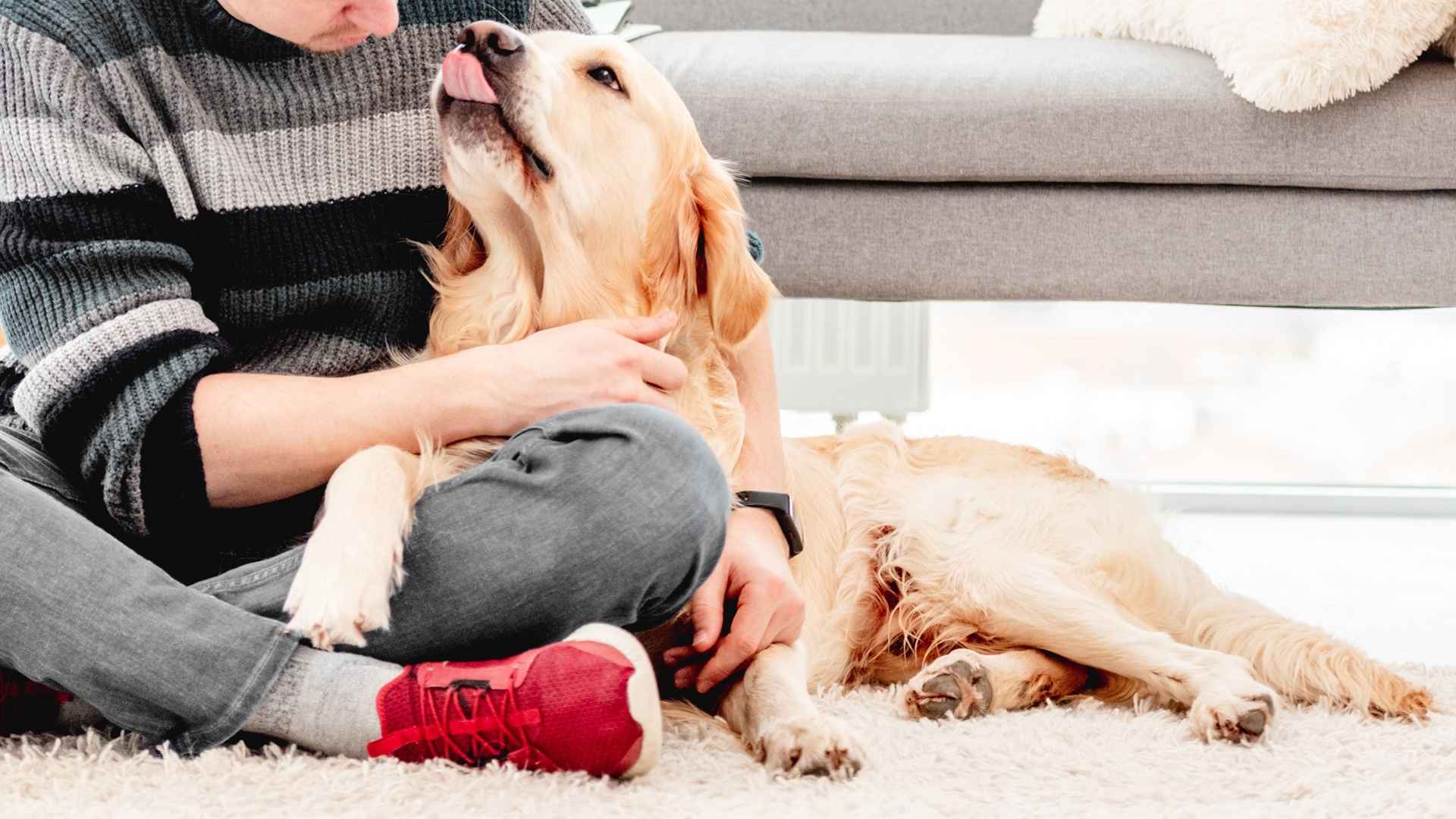Dogs do more than wag their tails and fetch balls. For many, they represent security, comfort, and unconditional love. Emotional service dog breeds are specially trained to assist people with disabilities. Especially those who are dealing with mental health conditions like depression, anxiety, or post-traumatic stress disorder (PTSD). These dogs are far more than pets, they are lifelines.
No matter you are looking for therapy dogs, emotional support animals, or psychiatric service dogs, choosing the right breed is important. Certain breeds not only offer companionship but are also capable of performing specific tasks that provide comfort and emotional support.
They can alert their owners during panic attacks, open doors, or simply stay close during distressing moments. According to NCBI, emotional support dogs can significantly improve a person’s mental health by offering full companionship.
In this article, we will explore the best dog breeds that form strong bonds with humans and excel in public spaces as emotional support dogs.
Emotional Service Dog Breeds
1. Golden Retriever
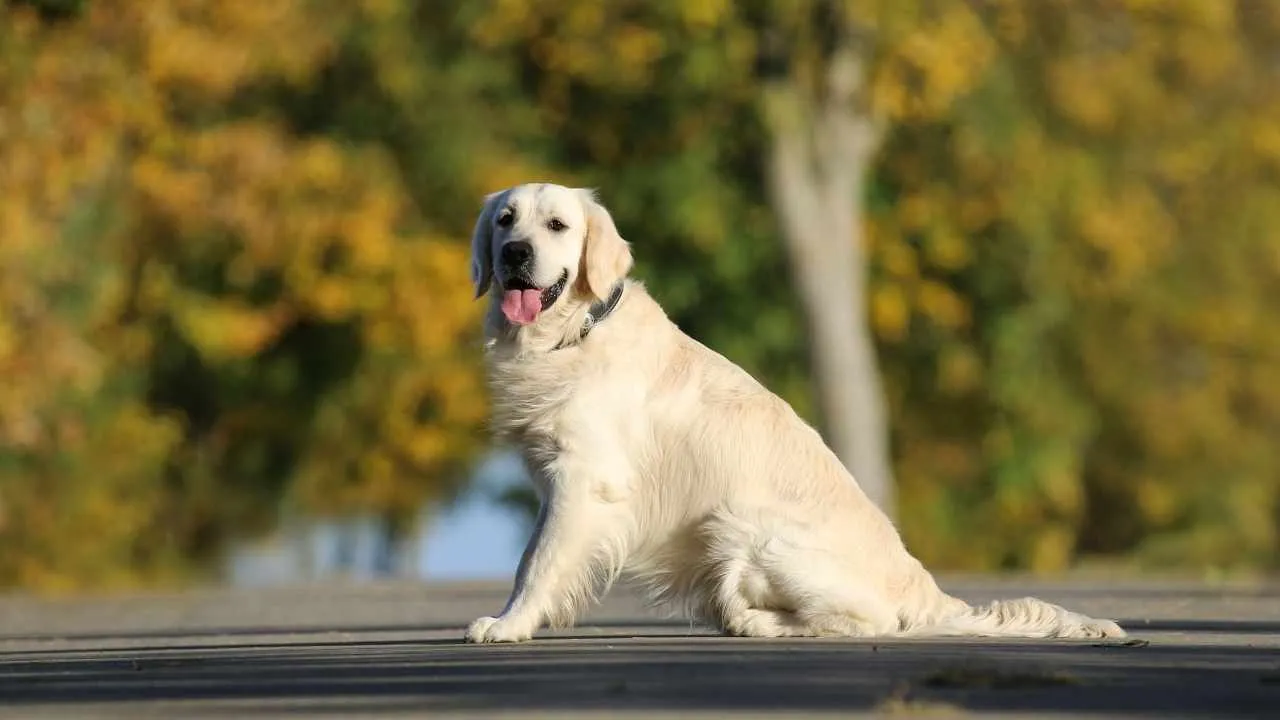
Breed Profile
Personality traits: Loyal, calm, affectionate
Energy Level: Moderate to high
Weight: 55-75 lbs
Height: 22 to 24 inches
Best for: Families, individuals with anxiety or PTSD
Why They’re a Great Choice
Golden retrievers are often the first name that comes up when people mention therapy or emotional service dogs. Their friendly disposition and affectionate nature make them ideal for providing emotional help.

They are specifically trained to sense shifts in human emotions.
Their patient and gentle demeanor is perfect for those who need ongoing support.
They’re often used in nursing homes and social settings due to their easygoing nature.
The American Kennel Club highlights Golden Retrievers as one of the most popular and capable breeds used in service roles. They are also famous for their thick, water-resistant, and luxurious golden coats. Golden Retrievers shed year-round and heavily once or twice a year. Brushing them with a slicker brush once or twice a week—daily during heavy shedding—helps keep the loose hair off your furniture.
2. Labrador Retriever
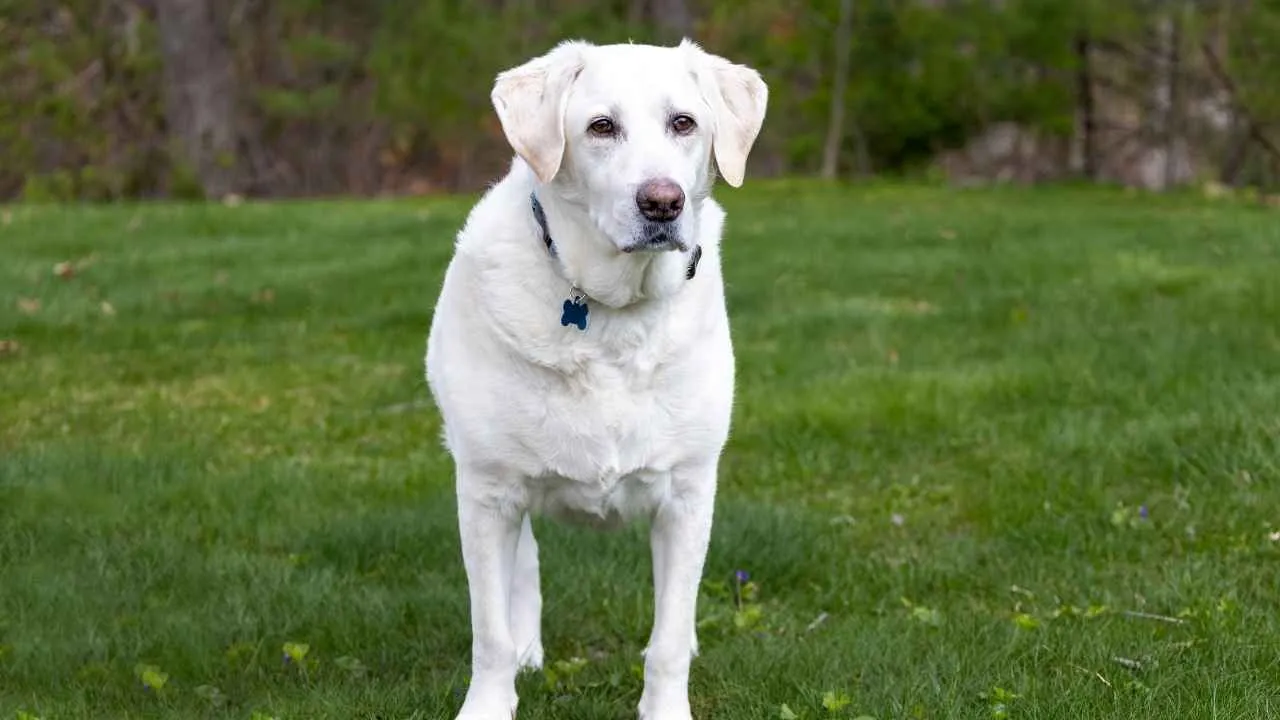
Breed Profile
Personality Traits: Outgoing, intelligent, Devoted
Energy Level: High
Weight: 55-80 lbs
Height: 22 to 25 inches
Best For: Veterans with PTSD, individuals with mobility challenges
What makes them Stand Out
The Labrador Retriever is not just America’s favorite breed. They are also among the top emotional support animals. These are known for their keen intelligence. These dogs are trained to perform complex tasks like fetching medication or alerting someone during a panic attack.
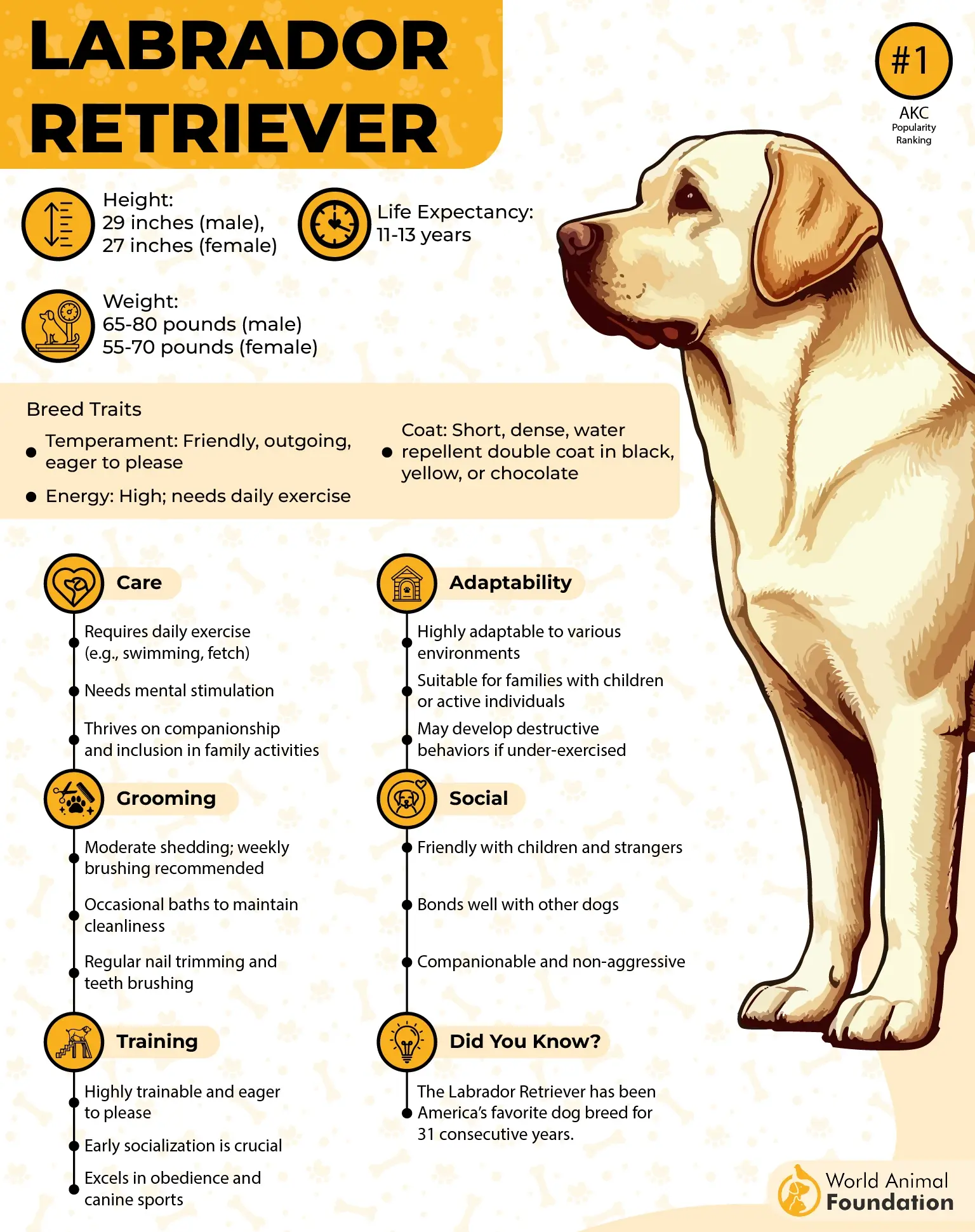
USDAA states that Labs are highly food-motivated, which may be linked to a specific gene that affects their appetite and makes them more prone to weight gain. Here are some more specifications of this dog variety:
Their extensive training capabilities make them perfect psychiatric service dogs.
Labs are gentle yet alert, capable of adapting to access right environments.
According to VCA Animal Hospitals, Labrador Retrievers are not only loyal but also super friendly. Labs love to be in water because they started their initial work alongside fishermen. Labradors are sometimes seen as high-maintenance because of their high energy, need for regular social interaction, and consistent grooming. They’re not difficult to care for, but they do need time, attention, and daily activity to stay happy and healthy.
3. Cavalier King Charles Spaniel
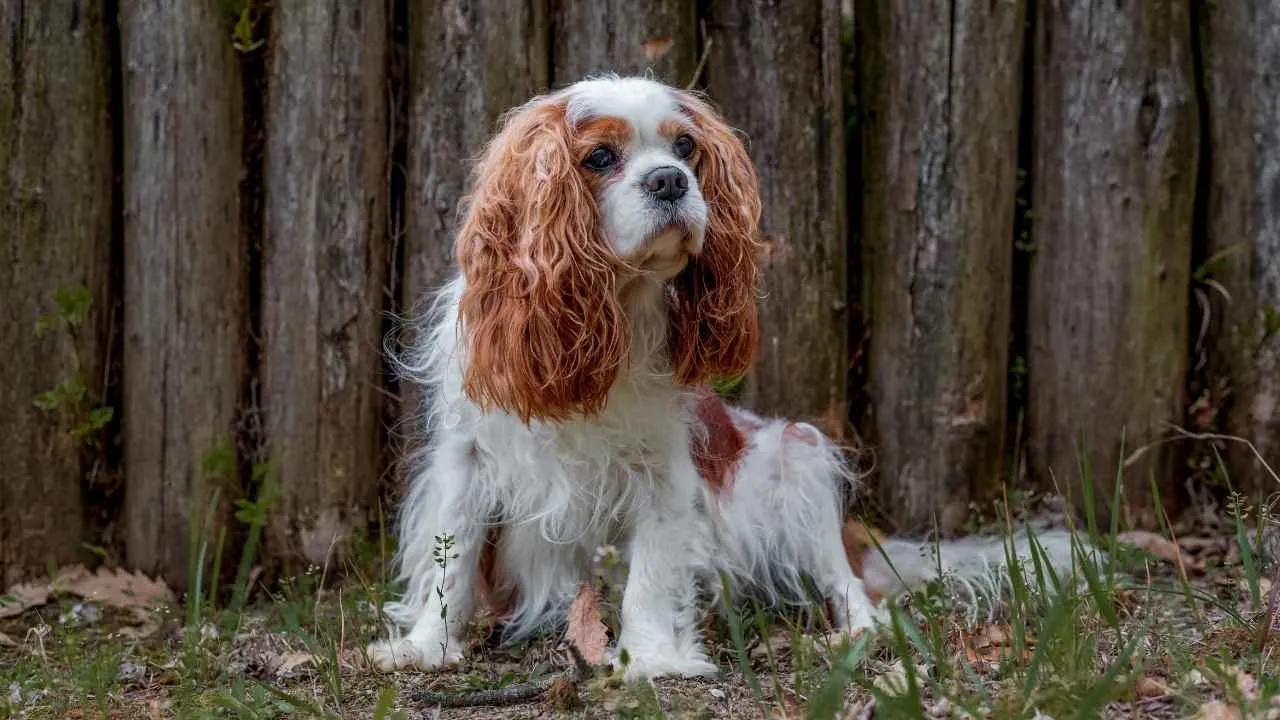
Breed Profile:
Personality Traits: Sweet, adaptable, quiet
Energy Level: Low to moderate
Weight: 13-18 lbs
Height: 12 to 13 inches
Best For: Individuals living in apartments or requiring constant closeness
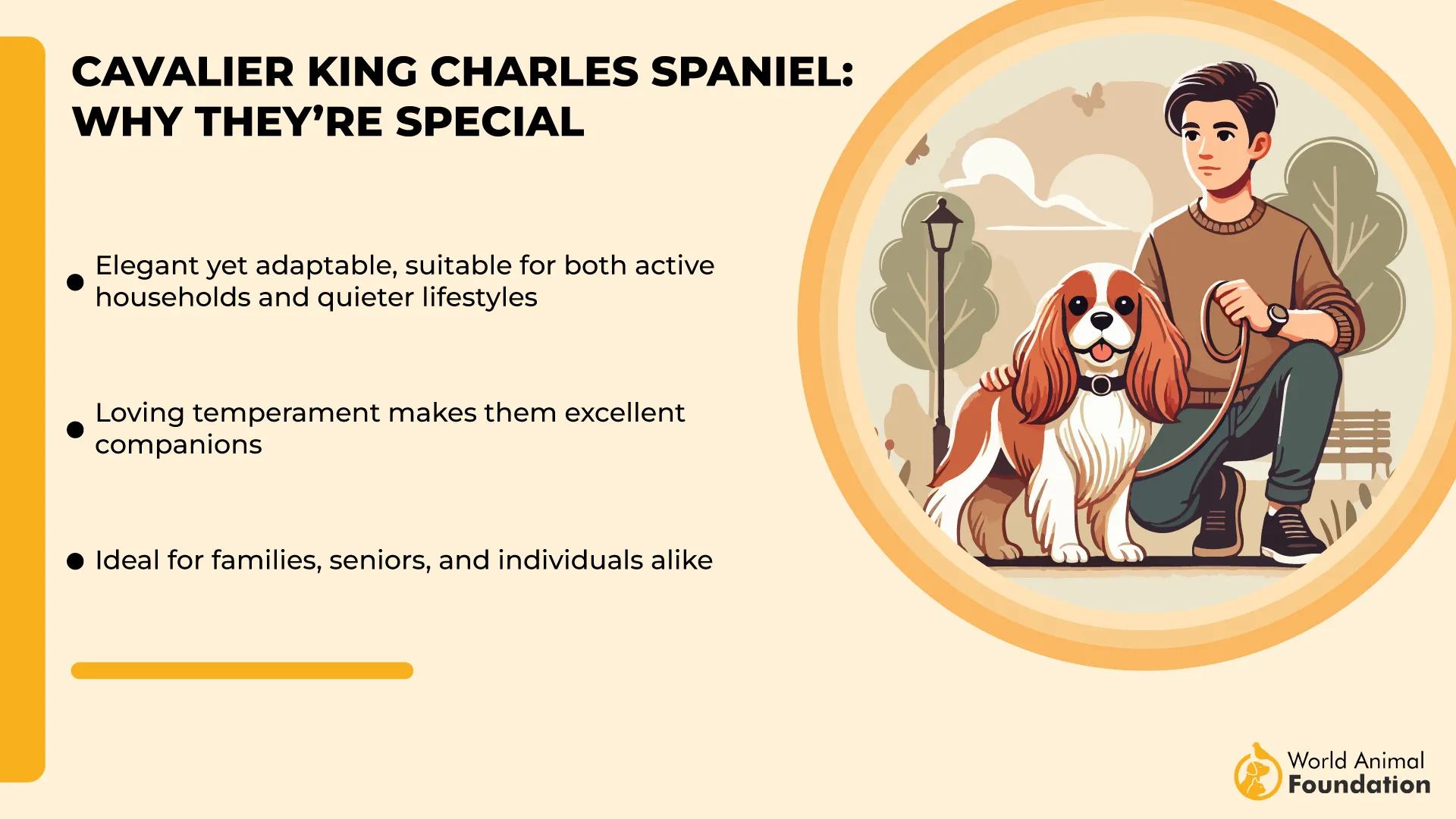
Small Dog with Big Heart
This breed may be small, but its ability to provide comfort is excellent. The Cavalier King Charles Spaniel is normally recommended by a licensed mental health professional for its natural ability to mirror emotions and stay close to its owner at all times.
Their expressive eyes can sense sadness or unease.
Known to sit on laps or stay nearby when distress is sensed.
Easy to manage in local areas due to their size and calm nature.
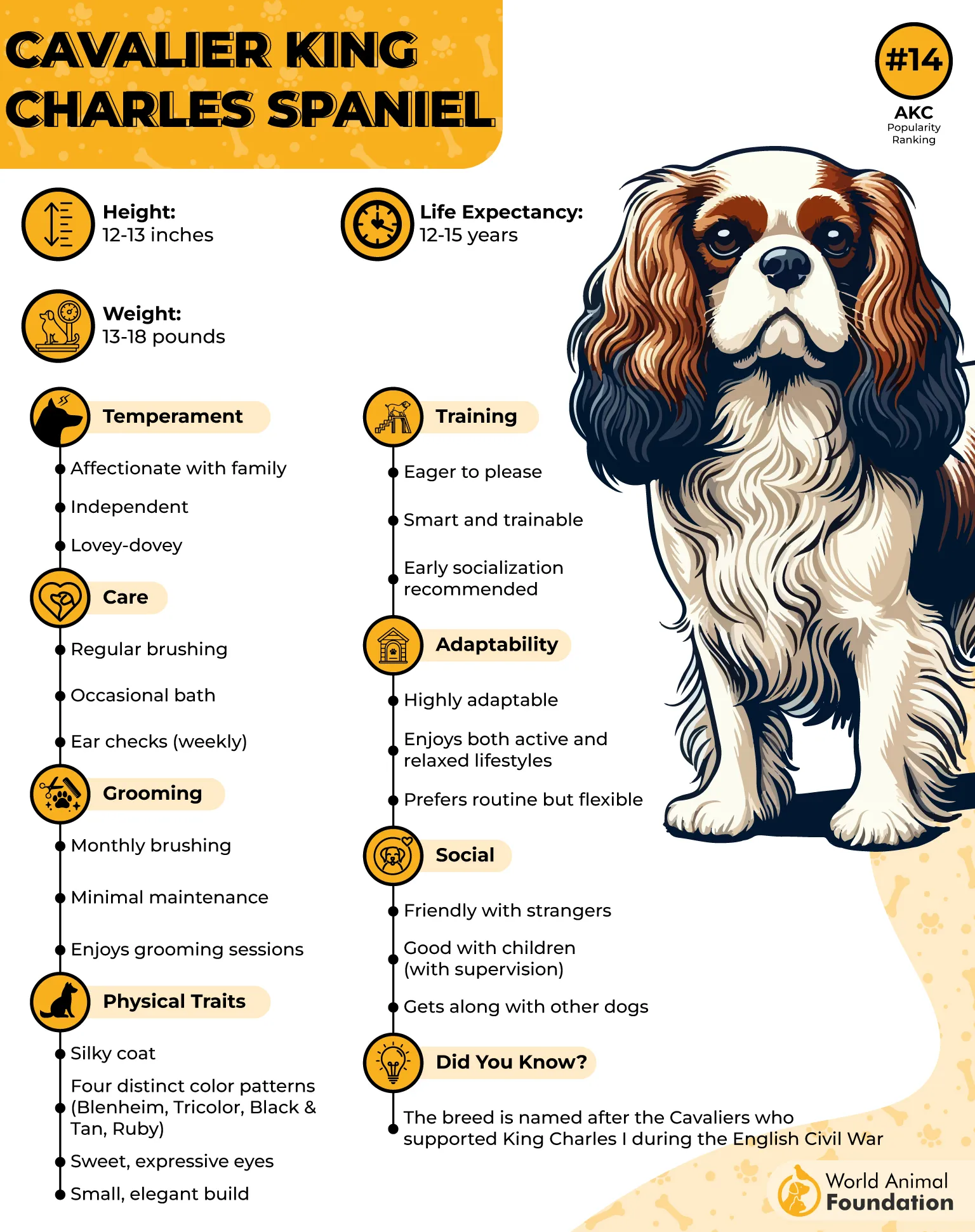
As noted by AKC, the Cavaliers are especially beloved for their gentle temperament and emotional sensitivity. This breed actually got the name from a king in the 17th Century. They have moderately high-maintenance coats that need daily brushing to prevent tangles and mats. They shed year-round, with heavier shedding in spring and autumn, so extra grooming is needed during those times.
4. Poodle
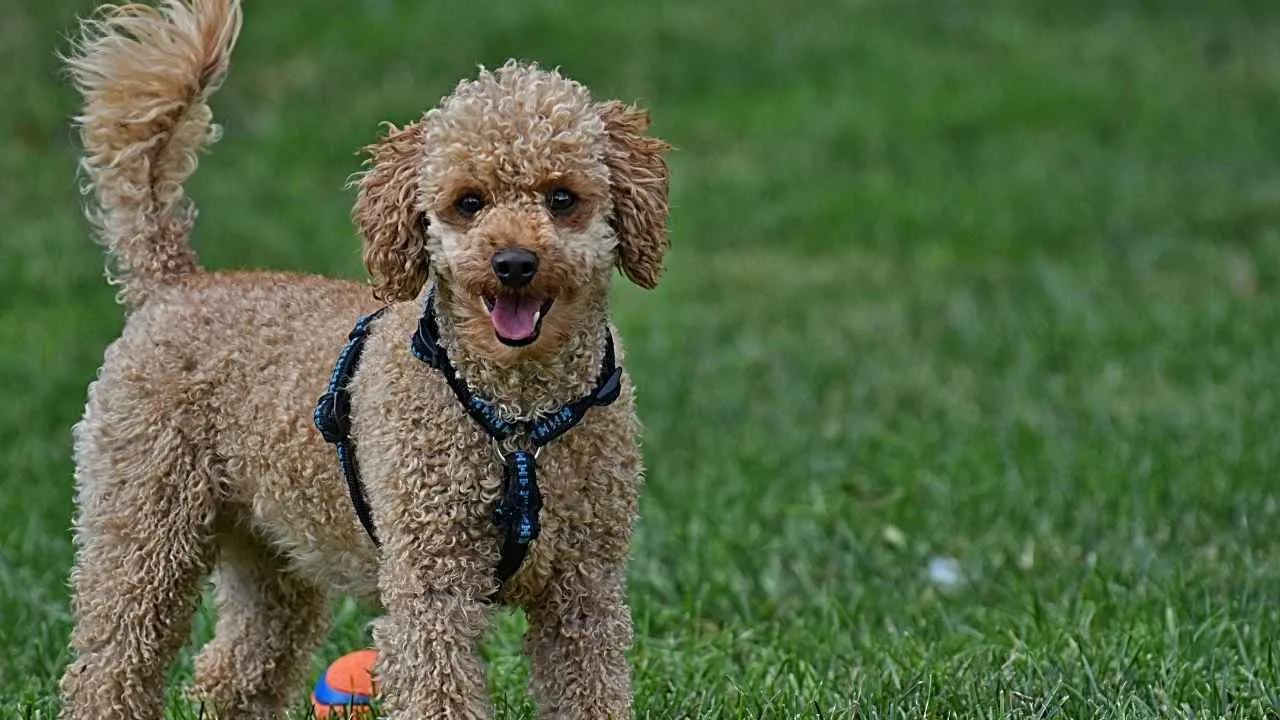
Breed Profile
Personality Traits: Smart, obedient, hypoallergenic
Energy Level: Moderate
Weight: Varies by size (Toy, miniature, standard)
Height: Up to 10 inches (toy), 10-15 inches (Miniature), over 15 inches (Standards)
Best for: Allergy sufferers, those needing high task-oriented service dogs
Elegance Meets Intelligence
Poodles are not just pretty, they are brilliant. Whether it’s a toy, Miniature, or Standard, each size brings something special to the table for those needing emotional support dogs, especially people with limitations. Poodles are highly trainable, ranking as the second most intelligent dog breed according to the experts.
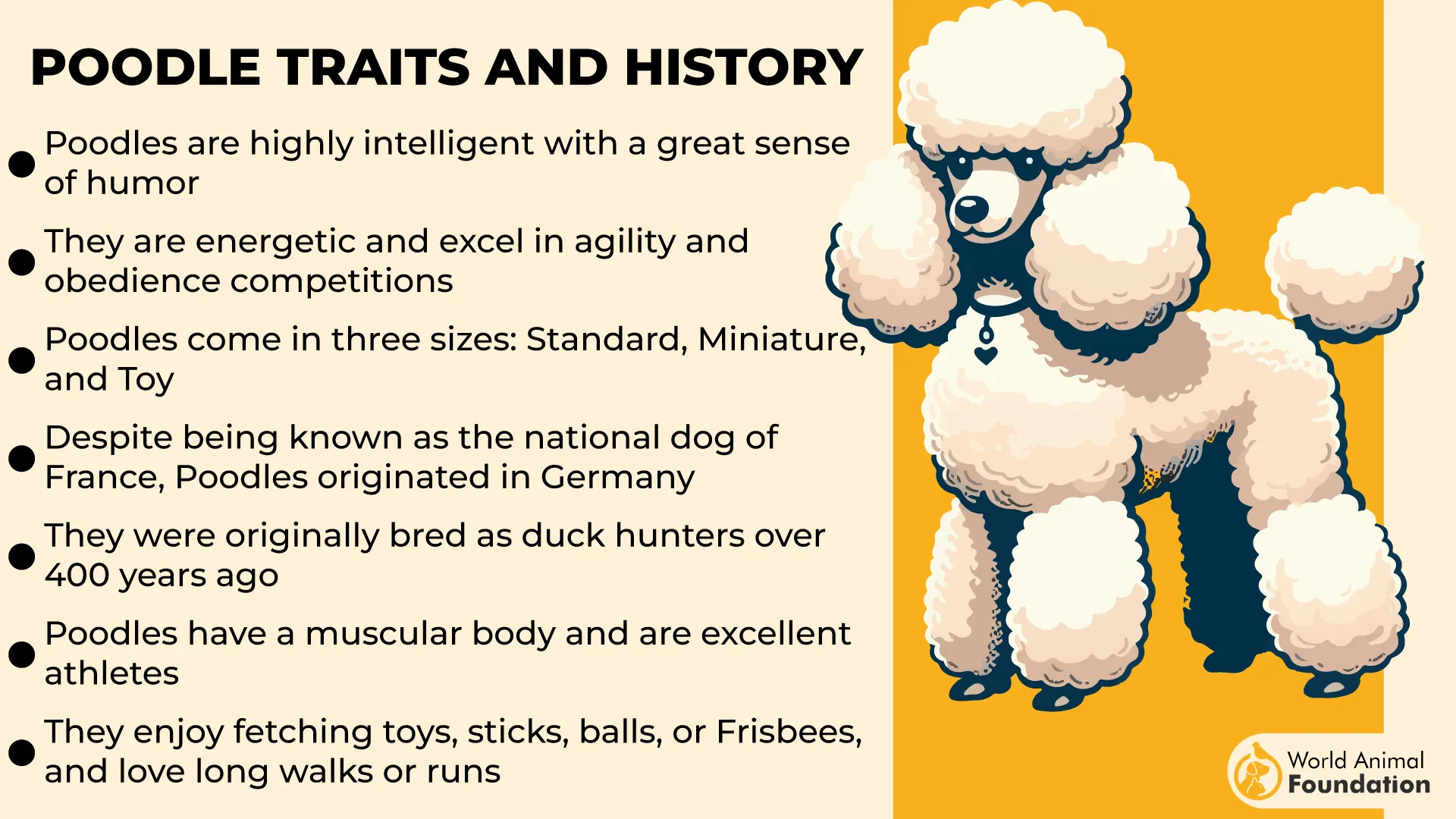
They are specifically trained to assist with post-traumatic stress disorder, panic attacks, and even alerting their owner to take medication or regular breathing.
Despite their elegance, poodles need regular exercise, like:
Toy (30-45 mins)
Miniature (45-60 mins)
Standard (60-90 mins)
Their hypoallergenic coat is a great pick and has many benefits for those with sensitivities. Their coat is available in a variety of colors like black, white, silver, brown, and parti-colors. They also require regular grooming so they can keep their elegance alive.
5. American Staffordshire Terrier
Breed Profile
Personality Traits: Courageous, loyal, protective
Energy level: High
Weight: 40-70 lbs
Height: 17 to 19 inches
Best for: Individuals needing strong physical and emotional support.
The Underdog of Emotional Support
Often misunderstood, the American Staffordshire Terrier is a loving, deeply loyal emotional support animal. With proper training, they become attentive, responsive, and incredibly in tune with their owner’s mood.
They are known to remain calm during episodes of panic attacks or emotional breakdowns.
They offer security and emotional grounding to their humans.
They do best with experienced dog owners who can channel their high energy and strong willpower effectively. American Staffordshire Terriers are naturally athletic and need plenty of daily exercise—around 60 minutes, ideally split into a few sessions.
Their short, single-layer coat doesn’t shed much, but they may still leave hairs behind in their favorite spots. Grooming is low-maintenance, with brushing needed just once every few weeks.
6. Collie
Breed Profile
Personality Trait: Devoted, intuitive, alert
Energy Level: Moderate
Weight: 50-75 lbs
Height: 20 to 26 inches
Best For: Individuals with emotional instability or social anxiety
Not just a Movie Dog
Collie is known for their instinctive understanding of people. As they are from the herding group, they seem less calm. But actually, they are gentle and nurturing.
They constantly check and confirm that their flocks and family are happy and secure. Their deep eyes and calm demeanor help people with disabilities feel seen and supported.
They offer many benefits, including:
Quick Responsiveness to shifts in emotions.
Can be trained to retrieve medication
Can signal a caretaker if the person is in distress
Collies are energetic dogs that need regular exercise and mental stimulation to stay happy. Daily walks, interactive play, or training sessions help keep them healthy—and can boost your own well-being too. Their long, beautiful coat needs consistent grooming, including regular brushing and occasional trimming, to stay tangle-free and looking its best.
7. Pug
Breed Profile
Personality Traits: Playful, affectionate, quirky
Energy Level: Low
Weight: 14-18 lbs
Height: 10-13 inches
Best for: Elderly, individuals living in small spaces
The Clown That Cares
This is another type of emotional support dog. Pugs, with their squished faces and expressive eyes, are emotional anchors. PetMD includes pugs among the best emotional support animals.
They’re perfect for anyone who needs a low-maintenance yet affectionate companion. If you’re looking for a small, quiet canine that you can travel with easily, a pug must be a great choice.
These small dogs are often used as emotional support animals because of their affectionate nature.
Known to stay physically close and provide warmth, which can be calming during anxious episodes.
They’re a great place to start if you’re new to animal support. They don’t even need much exercise, but need to check they’re not overheating because they are brachycephalic.
Conclusion
Choosing the right emotional support dog can make a world of difference in a person’s life. For individuals facing depression, anxiety, or emotional challenges. The right companion, whether it’s a service dog, therapy dog, or emotional support animal, can be a true lifeline. These working dogs are then pets. They are trusted partners that bring affection, structure, and healing.
Some dogs are trained to perform specific tasks, making them well-suited for those with serious mental health conditions. Others naturally offer comfort and companionship. It creates a powerful bond with its owner.
Under federal law, only service dogs have full public access rights, while emotional support animals must be prescribed by a licensed mental health professional to access certain spaces.
No matter the category, these remarkable dogs bring hope, love, and emotional strength into the world of those who need it most by changing lives one paw at a time.


